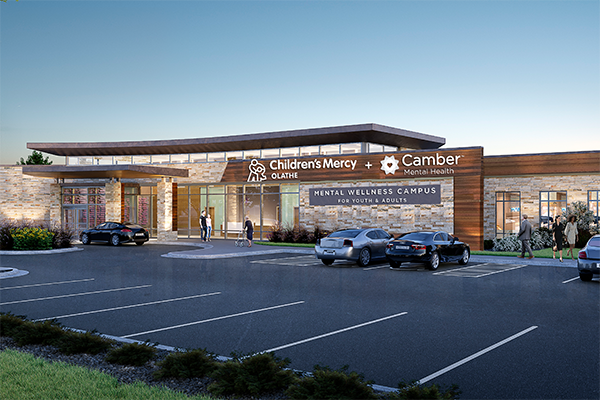- Locations
- How We Help
Overview
As the regional leader in youth mental health treatment, our innovative services help youth achieve health and wellness.
Treatment Programs
- Admissions
Overview
Learn how to admit your child to a Camber treatment location or make a client referral.
- Youth Disorders
- Resources
Overview
Our free resources help you stay informed and educated about mental health, brain development, and childhood trauma as well as how Camber is working toward building healthier communities.
- About Us
Overview
Our philosophy is to provide collaborative, compassionate and effective care through the use of timely, individualized treatment planning.
Learn More About Us
Disruptive Behavior Disorders
 Children argue, have tantrums, disagree with authority and display other challenging behaviors as a normal part of going through different developmental stages. However, these disruptive behaviors can become serious if they grow severe, are occurring frequently, and/ or put their safety or the safety of others at risk.
Children argue, have tantrums, disagree with authority and display other challenging behaviors as a normal part of going through different developmental stages. However, these disruptive behaviors can become serious if they grow severe, are occurring frequently, and/ or put their safety or the safety of others at risk.
Two Types of Disruptive Behavior Disorders:
Conduct Disorder
A child with this disorder is often showing excessive aggression toward other people and significantly struggles with following rules. Their inability to follow rules may be so extreme that they are breaking laws and getting into serious legal trouble. These behavioral challenges make it difficult for them to maintain healthy relationships and their risky behavior may also result in physical and/or emotional injuries of themselves or others.
Symptoms and Examples of Behaviors:
- Bullying or being aggressive toward other people and/or cruelty to animals
- Risky behaviors such as substance misuse, excessive speeding in cars, skipping school, sneaking out of the house, or other serious violations of rules and safety
- Damaging personal or public property
- Frequently lying
- Stealing
Oppositional Defiant Disorder
If a child is acting out frequently and it is causing problems throughout all aspects of their life—home life, school, friendships, etc.—then they may be struggling with this disorder. Typically, this disorder shows in adolescent children and is less common in teens. A child with this will often argue with or defy authority figures.
Symptoms and Examples of Behaviors:
- Often arguing with authority figures
- Doesn’t follow rules well
- Often angry or having tantrums
- Easily irritated or they go out of their way to irritate others
- Inability to take responsibility for mistakes, blames others
What You Can Do to Help
- Seek professional help. It’s important to have a physician or licensed mental health professional examine the child for an accurate assessment and diagnosis of their physical and mental health.
- If the youth expresses thoughts of self-harm, suicide, or violence against another person, call 911 immediately. Take these statements very seriously and get them professional help as soon as possible.
- Encourage the use of coping skills that will help the child regulate their emotions (i.e., deep breathing, meditation, exercise, listening to music, etc.).
- Work closely with the child’s teachers and school guidance counselors to ensure everyone knows how to best support the child.
- Encourage the child to exercise or do physical activities they enjoy. Regular exercise can help with depression, promote better sleep, and reduce challenging behaviors.
- Consider attending therapy sessions together to show them your commitment to their wellness. Allow the child to express their feelings openly and honestly without judgment or shame.
![]()
Camber Children’s Mental Health Can Help
Camber is a network of nonprofit children’s mental health hospitals and residential treatment centers serving youth ages 6 to 18. Each year, we give thousands of youth a safe place to heal, build resilience, and overcome struggles with mental health conditions. Our compassionate team of psychiatric, medical and behavioral health professionals provides a nurturing and therapeutic experience along with a treatment plan tailored to meet each child’s individual needs. The goal of our treatment programs is for each child to safely return home with the resources and supports in place to live a healthy and happy life in their community.
If you’re concerned that a child in your care is struggling with a disruptive behavior disorder or other mental health needs, call Camber at 913-890-7468. We’re available 24/7 to answer your questions.
Here are some Camber resources to help you understand and address disruptive behavior disorders:
- Learn about the 3 most common levels of mental health treatment for children & teens
- Check out mindfulness and how it can prevent impulsive, reactive responses [VIDEO]
- Make an emotion regulation plan to identify triggers and helpful coping skills when emotions become overwhelming
- Use these easy deep breathing techniques when feeling overwhelmed [VIDEO]
- Practice these simple yoga stretches to connect your mind and body [VIDEO]
- Understand how the brain develops and how stress can affect healthy growth
Here’s a list of additional resources you can contact for help:
- Call the child’s primary care physician or your local community mental health center
- Text HOME to 741741 for 24/7 support from the Crisis Text Line
- Call the National Alliance on Mental Illness helpline at 800-950-6264 or visit their website at nami.org
- Learn more about behavior disorders and access resources from the Child Mind Institute
Share this information with your support system! View and download this information as a PDF.




